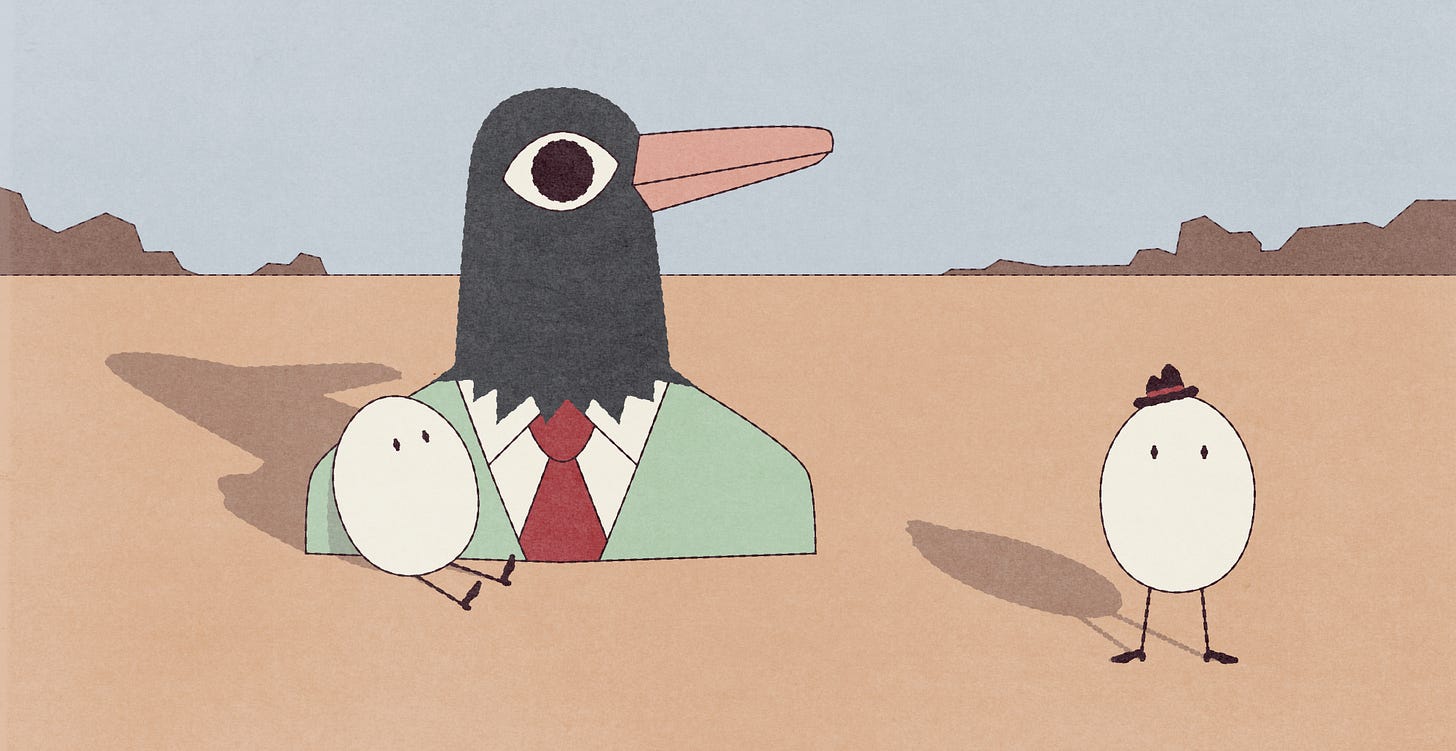The Prose Poem as a Box of Laughing Sunflowers
Lesson 1 - Defining surrealism & using the prose poem as the perfect medium

This is Part 1 of Karan Kapoor’s Prose Poetry Masterclass
Hello, friends! Thank you for being here.
I am Karan Kapoor, your instructor for the next few weeks. I spend my days writing (lies!), playing with my daughter, and editing ONLY POEMS, and am good at almost nothing else. My first introduction to surreal poetry was through Bob Hicok and Luke Kennard, and really I haven’t looked back since. I’ve spent many nights reading through surreal manifestos and other ridiculous stuff and hope that some of what I know about poetry and surrealism will be half as interesting to you as it is to me.
Over the next few weeks, we’ll canoe through the surreal seascape of prose poetry, exploring various forms and techniques to help you create your own surreal masterpieces. We'll begin by understanding the roots and essence of Surrealism, and then delve into the different mediums that can inspire your prose poems, from visual art to film, music, and beyond. Each lesson will introduce new forms and exercises to stretch your imagination. My hope is that you finish this course with at least a dozen kick-ass prose poems that you can send out.
Given the nature of the Forever Workshop, it's likely that some of you may be unfamiliar with surrealism, and even prose poems for that matter, so I’ve dedicated Lesson 1 to introducing them to you by presenting what I believe to be the essentials.
My goal is to help you determine whether one or both of these styles resonate with you as a writer — remember, I’m very biased.
An Elevator Pitch For Surrealism
Surrealism was brewed in the early 20th century by a bunch of French dudes, André Breton being the leader (eh, really?), but he did write the Manifesto for Surrealism (so did Yvan Goll at the same time (1924)) so people refer to him as the father of Surrealism.
The first manifesto, arguably the most important one, is readily available and I urge you to read it. It defines surrealism as a revolutionary artistic movement aimed at expressing the unconscious mind. It emphasizes imagination and dreams, rejecting rationalism and materialism.
Breton's manifesto set the stage for surrealism as a means to explore and liberate the human spirit through creativity and art. If you’re too busy or lazy to read it, here are my bite-sized takeaways…





